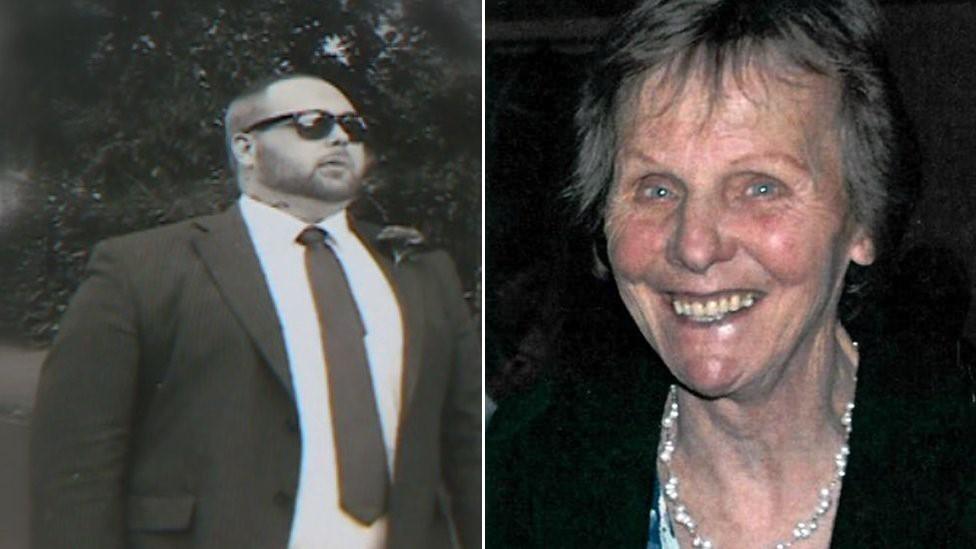Southern Health inquiry: Families left wanting closure, council hears
- Published
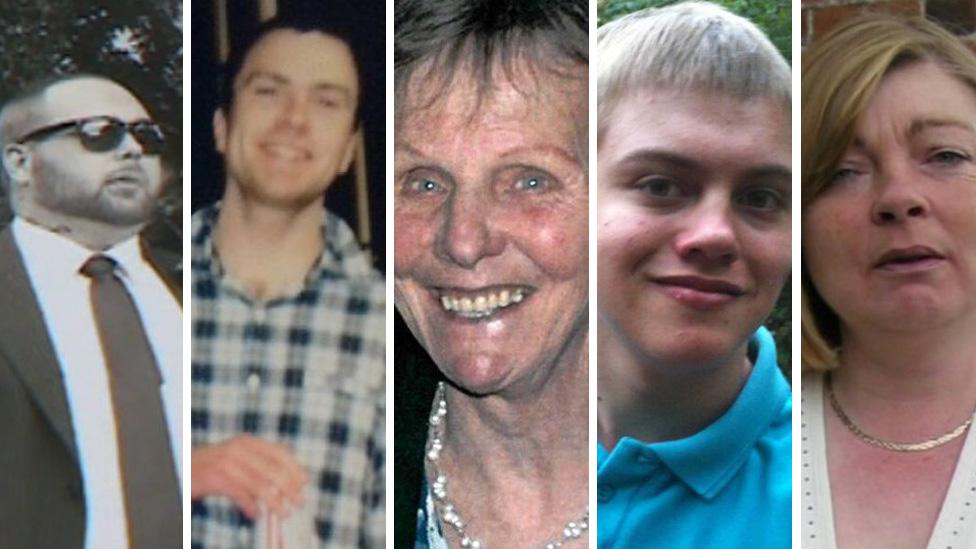
(L-R) David West, Robert Small, Marion Munns, Edward Hartley and Jo Deering died in the care of Southern Health Foundation Trust
Bereaved families have been "denied closure" despite a report into a scandal-hit NHS trust, a council committee has heard.
An independent probe into Southern Health was held after failures were found to have led to five vulnerable patients dying between 2011 and 2015.
Members of Hampshire County Council's health committee called for a further review after criticism by families.
The trust said it would put an action plan before the committee next year.
The latest report into Southern Heath NHS Trust, which provides psychiatric and disability support services to people in Hampshire, found it "needs continuing reform" despite making recent improvements to its standards of care.
The investigation was sparked by the deaths of David West, Robert Small, Marion Munns, Edward Hartley and Jo Deering, but the investigation did not examine their deaths in particular.
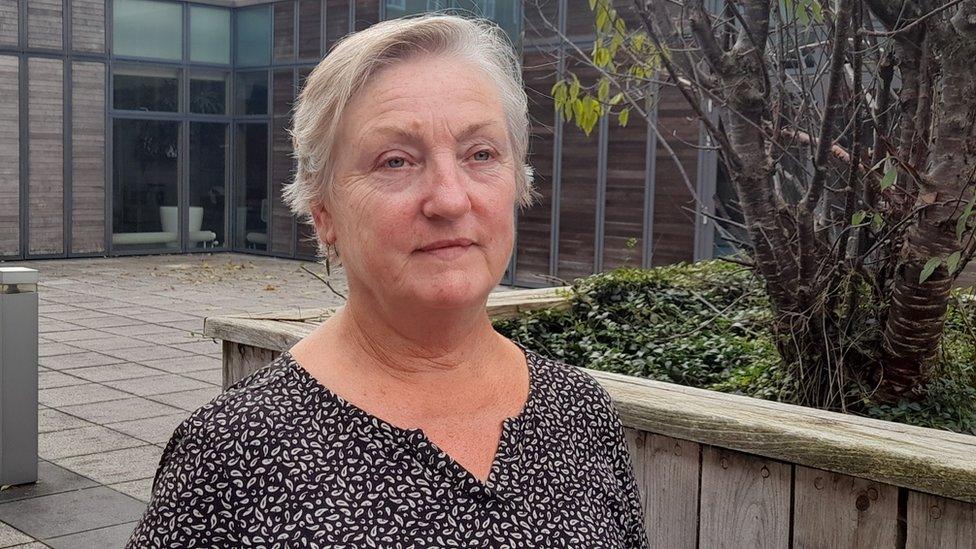
Dr Maureen Rickman, whose sister Jo Deering died in October 2011, spoke at the committee meeting
At the council's public health and adult social care select committee, Dr Maureen Rickman, whose sister Jo Deering died in October 2011 from a drug overdose while under the care of the trust, said the families "still do not have the answers", according to the Local Democracy Reporting Service, external.
"If the terms of reference had been followed the investigation should have given insight into the care inadequacies. Instead, we were denied the closure we were promised," she said.
"The committee has not been given reliable information on the deaths that require attention. The people of Hampshire deserve better than this."
Among the committee members, David Harrison called for a "more fundamental review" , while Kim Taylor said: "What I'm getting is a clear sense that the relatives aren't able to achieve some sort of closure through this process.
"There is a moral imperative to look at how that can be achieved."
The trust's chief executive Ron Shields said it "fully participated in and accepted the report".
"Some of these recommendations are ongoing, such as how we engage with patients, which can be a matter of human dynamics," he added.
The meeting voted through an amendment to officially recognise the concerns of the families.

Follow BBC South on Facebook, external, Twitter, external, or Instagram, external. Send your story ideas to south.newsonline@bbc.co.uk, external.
- Published9 September 2021

- Published6 April 2021

- Published29 March 2021

- Published4 March 2021

- Published29 January 2021

- Published10 December 2015
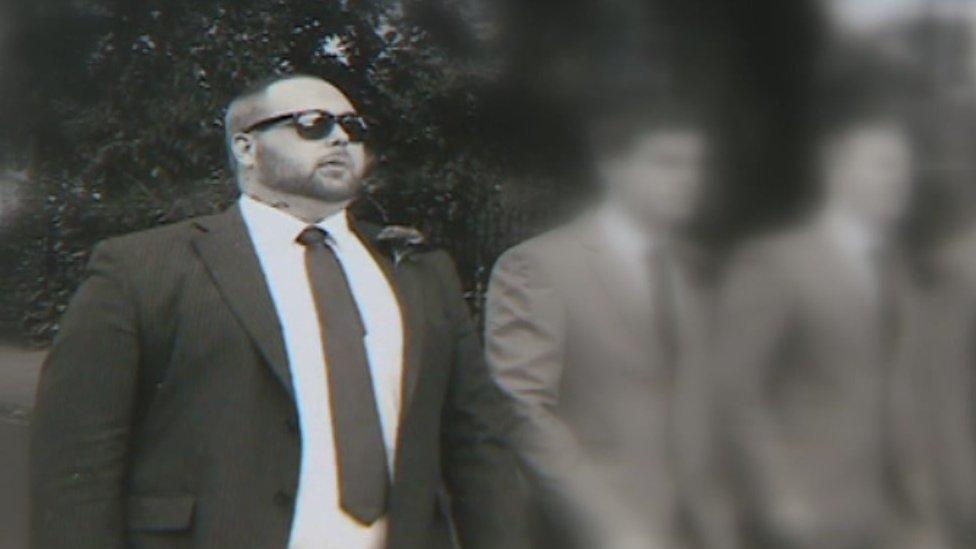
- Published17 December 2015
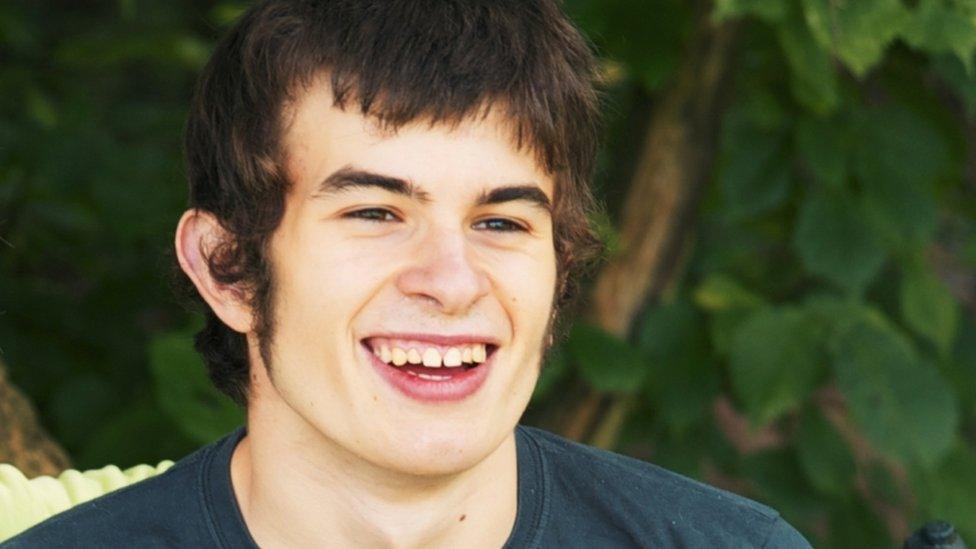
- Published5 January 2016

- Published4 February 2016
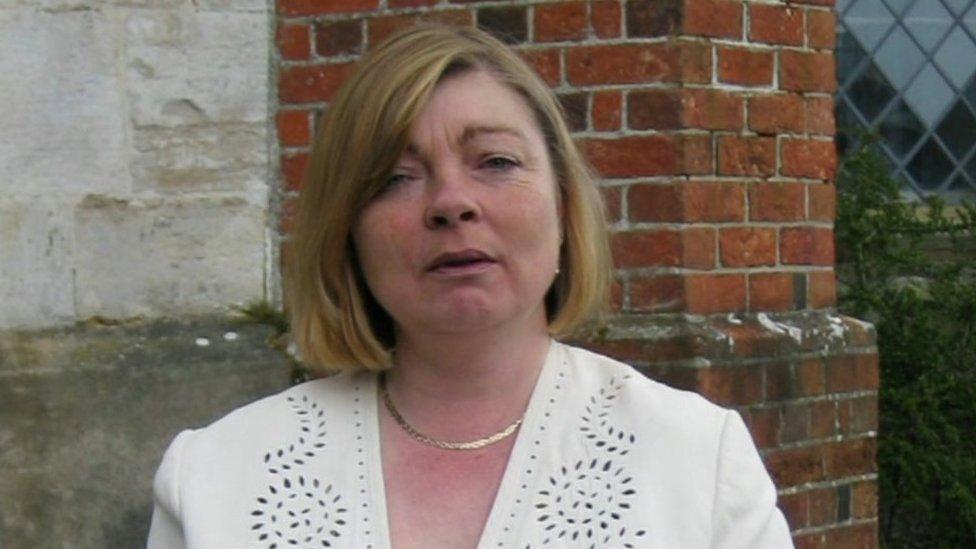
- Published23 January 2020
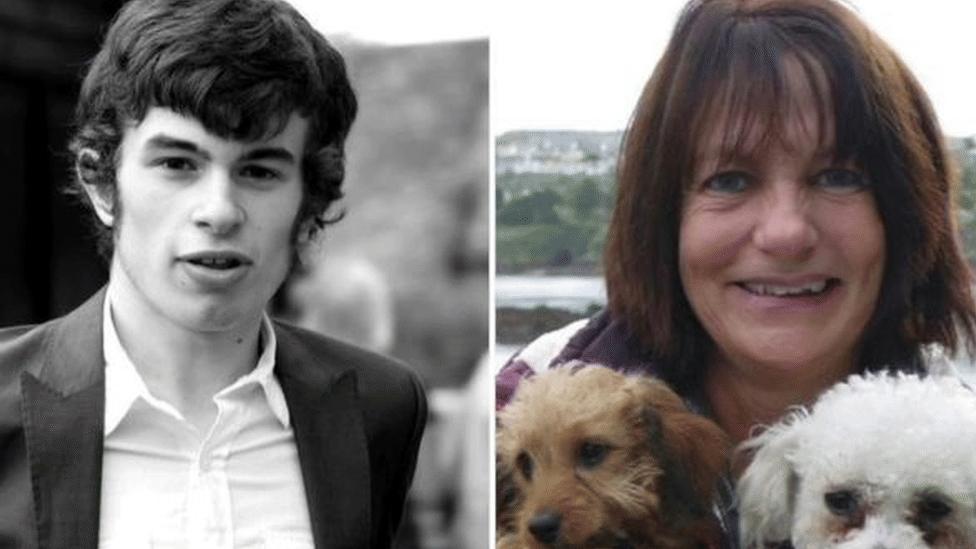
- Published9 March 2021

- Published6 February 2020
